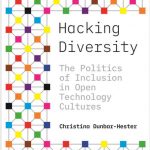The COVID-19 pandemic has exposed and exacerbated existing global inequalities. Whether at the local, national, or international scale, the gap between the privileged and the vulnerable is growing wider, resulting in a broad increase in inequality across all dimensions of society. The disease has strained health systems, social support programs, and the economy as a whole, drawing an ever-widening distinction between those with access to treatment, services, and job opportunities and those without.














 JOIN SSIT
JOIN SSIT